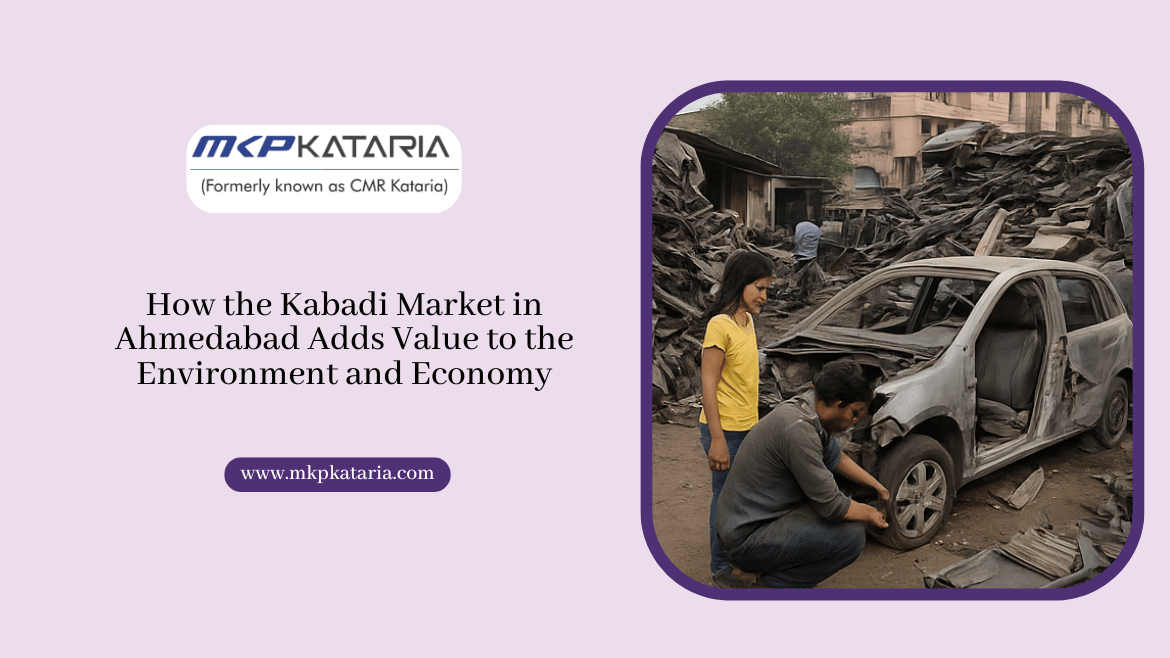When people think about waste, the first thing that often comes to mind is pollution or landfills. However, the kabadi market has a different story to tell, especially in a fast-growing city like Ahmedabad. One of the most significant contributors is the car kabadi market Ahmedabad, where old and damaged vehicles are dismantled, their parts reused, and their materials recycled. Far from being just a market for junk, the kabadi system in Ahmedabad adds immense value to both the environment and the economy.
We will discuss how the Kabadi market in Ahmedabad adds value to the environment in this article.
Economic Benefits of the Kabadi Market
- Job Creation
Thousands of families depend on the kabadi market for their livelihood. From the small neighborhood kabadi shops to large scrap yards, the industry employs unskilled, semi-skilled, and skilled workers.
- Affordable Raw Materials for Industries
Recycled materials, such as steel, aluminum, and plastic, are sold at affordable rates to industries. This reduces production costs for manufacturing sectors and supports local businesses that rely on low-cost raw materials.
- Boost to the Automobile Recycling Sector
The car kabadi market in Ahmedabad has given rise to a structured system where old vehicles are dismantled, and usable parts like engines, batteries, tires, and metals are extracted. These parts are sold in secondary markets, benefiting automobile repair shops and reducing costs for car owners.
- Support to the Informal Economy
Apart from organized recycling units, many small vendors and workers earn directly from the kabadi system. This informal economy, though unstructured, plays an important role in sustaining livelihoods.
Environmental Benefits of the Kabadi Market
While the economic benefits are undeniable, the kabadi market also plays a crucial role in safeguarding the environment. By promoting recycling and reuse, it helps in reducing the burden on landfills and conserving natural resources.
- Reduction of Waste in Landfills
Every year, tons of waste end up in landfills, causing environmental hazards. By recycling materials like paper, plastic, and metal, the kabadi market significantly reduces the waste burden on dumping grounds.
- Lower Carbon Footprint
Recycling metal requires far less energy than extracting and processing raw materials. For example, recycling aluminum saves up to 95% of the energy compared to producing new aluminum. By enabling large-scale recycling, the kabadi industry lowers greenhouse gas emissions.
- Proper Disposal of Hazardous Materials
In the car kabadi market, parts like batteries, oils, and coolants are handled with care to prevent environmental contamination. Without proper recycling, these hazardous materials could seep into the soil and water, posing serious health risks.
- Promotion of Circular Economy
The kabadi system promotes a circular economy where products are not discarded after use but re-enter the value chain. This ensures maximum utilization of resources and reduces dependence on virgin raw materials.
Role of the Car Kabadi Market in Sustainability
Cars are complex machines made of metals, plastics, and electronic components. When a vehicle reaches the end of its life, discarding it entirely would not only be wasteful but also harmful to the environment. That’s where the car kabadi market steps in.
- Dismantling Process: Old cars are carefully dismantled, and reusable components are separated.
- Spare Parts Supply: Usable spare parts are sold at affordable rates to workshops and customers, extending the life of other vehicles.
- Metal Recycling: Ferrous and non-ferrous metals from cars are sent to recycling plants, reducing the need for mining.
- Safe Disposal: Hazardous waste like oils, lubricants, and coolants is safely managed, preventing pollution.
This systematic recycling process saves resources, generates income, and contributes to the environment’s well-being.
How Kabadi Markets Inspire a Sustainable Future
In a world where climate change and waste management are pressing issues, the kabadi market offers a simple yet powerful solution. By turning waste into wealth, it demonstrates how local economies can be aligned with environmental goals. For a city like Ahmedabad, which is rapidly urbanizing, this balance is essential.
Citizens, too, play a role by selling their waste items to kabadiwalas instead of throwing them away. Every contribution, be it a pile of newspapers, an old refrigerator, or a scrapped vehicle, adds up to significant environmental savings.
Conclusion
The kabadi market in Ahmedabad is more than just a scrap collection system; it is a powerful driver of economic growth and environmental sustainability. From creating jobs and supplying affordable raw materials to reducing landfill waste and lowering carbon emissions, its impact is far-reaching. Particularly, the car kabadi market has transformed the way old vehicles are dealt with, ensuring that every part is reused or recycled responsibly. As awareness grows, initiatives like eco-friendly car recycling Ahmedabad will continue to shape a greener and more sustainable future for the city






